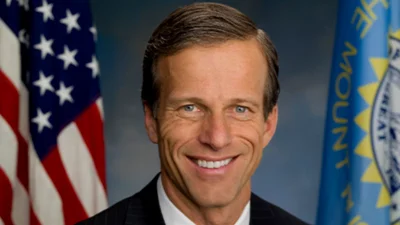PIERRE – Native American foster and kinship families play a vital role in the lives of native youth while their parents work through difficulties that make it unsafe to stay at home. Being cared for by Native American families within their own community can minimize the trauma to children while helping maintain important cultural connections.
“There is already a common foundation established by both being from similar backgrounds and the foster parent having survived and persevered through many similar obstacles already,” said Sequoia Crosswhite, a Lakota language and culture immersion teacher at a Rapid City elementary school.
In the past year, there has been an increase in Native American foster homes licensed by the Department of Social Services (DSS). During the first year of Governor Kristi Noem’s Stronger Families Together initiative from May 2021 to May 2022, the number grew by 25 percent from 83 to 103. However, there is a need for many more Native American foster and kinship families.
“Stronger Families Together is based on the enduring South Dakota principle of families helping families,” said DSS Cabinet Secretary Laurie Gill. “There continue to be children who need safe, loving and nurturing families in communities across the state.”
“Native American families should consider becoming a foster family to make a positive influence on foster children and maintain cultural traditions and values,” said Department of Tribal Relations Cabinet Secretary Dave Flute.
Children’s family and cultural ties are essential to their health and well-being.
“Many of my relatives cared for myself and others all the time. We always had a place to sleep, a seat at the table, food, and prayers,” said Natasha Eagle Star, a foster parent in Winner. “When we care for the wakanyeja (infants), hoksila (boy), wincincala (girls), koskalaka (young man), and wikoskalaka (young woman) with this respect, they in turn will carry this on.”
The impact of choosing to care for others benefits not only the children and families of today but can set an example that is passed down from one generation to the next.
“I choose to be a foster parent because I was taught to care for everyone, everything, everywhere,” Eagle Star said. “We are all related in some way shape or form. We are all connected to Unci Maka (Mother Earth) and we are always taught to care for anyone who comes to our doorstep.”
To learn more about becoming a foster parent, visit StrongerFamiliesTogether.sd.gov and fill out the online Commit to Know More card.
Original source can be found here.



 Alerts Sign-up
Alerts Sign-up